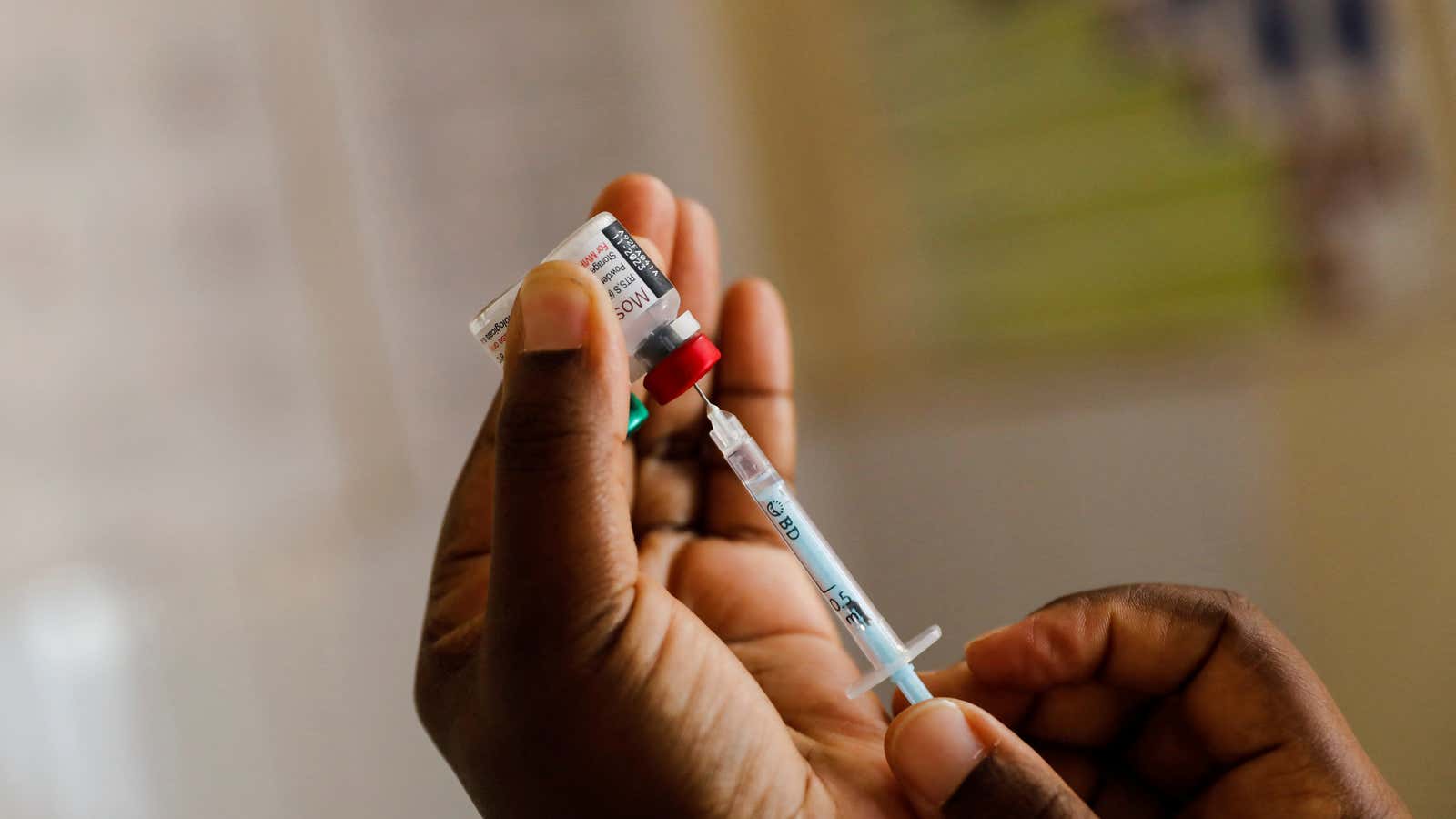Nigeria has provisionally approved the R21/Matrix-M malaria vaccine developed by scientists at the University of Oxford, less than a week after Ghana became the first country to approve the vaccine.
Director-general of the National Agency for Food and Drug Administration And Control (NAFDAC), Mojisola Adeyeye, said the agency “is granting registration approval for R21 malaria vaccine.” Like Ghana, Adeyeye said, the vaccine “is indicated for prevention of clinical malaria in children from five months to 36 months of age. The storage temperature of the vaccine is 2-8 °C.”
The approval will undergo appropriate tests for immunization under the health ministry and the National Primary Health Care Development Agency. “A provisional approval of the R21 malaria vaccine was recommended and this shall be done in line with the WHO’s malaria vaccine implementation guideline,” the NAFDAC said.
R21's efficacy is 77%
Despite the approval, Adeyeye explained that there is still need for more Phase 4 clinical trials of the vaccine in Nigeria. The vaccine has shown efficacy levels of 77%, exceeding the WHO’s threshold of 75%.
Results from an ongoing phase 3 clinical trial of the vaccine involving 4,800 children in Burkina Faso, Kenya, Mali, and Tanzania are yet to be published.
However, Phase 2 data published last September showed promising results. “We are delighted to find that a standard four-dose immunization regime can now, for the first time, reach the high efficacy level over two years that has been an aspirational target for malaria vaccines for so many years,” said Adrian Hill, director of the University of Oxford’s Jenner Institute, where the vaccine was developed, discussing the results in September.
Africa’s most populous nation is also the world’s most affected by malaria, accounting for 32% of global deaths, according to the 2021 World Health Organization (WHO) report (pdf). The country records 95,000 malaria deaths in children aged under five every year, largely due to the high cost of treating the disease.
It’s estimated that the disease costs Nigeria’s economy, Africa’s biggest, $1.1 billion a year.
